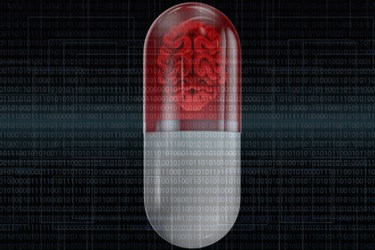FDA Paves Way For Intelligent Pills

By Ken Congdon

While serving as Editor In Chief of Health IT Outcomes, one of my favorite coverage areas was mHealth. I was always fascinated by the impact wearable sensors and mobile apps could have on diagnosis, treatment, and the overall quality of care delivery. I’ve published several articles about how wireless scales, glucometers, blood pressure monitors, and other devices are allowing physicians to remotely monitor patients with chronic conditions such as diabetes, congestive heart failure, and COPD. These tools alert doctors when patient vitals become abnormal, allowing them to proactively intervene to treat conditions before they progress to the point of requiring an office visit or hospital admission. I’ve also covered how wearable devices and mobile apps are bringing a level of self-service to healthcare — allowing patients to track everything from their heart rate to blood pressure to glucose levels (and take appropriate action) themselves.
I didn’t expect to encounter many applications of this type of “smart” technology in the pharmaceutical space. However, I’m glad to say I was wrong. Recently, a wave of announcements have been made that show how digital technologies may soon be paired with prescription medications to solve problems that have plagued the medical industry for years and improve overall therapeutic effectiveness.
Combating Medication Non-Adherence With Digital Sensors
For example, earlier this month the FDA expanded the Indications for Use statement for Proteus Digital Health’s Ingestible Sensor technology, enabling the device to be used as an aid in the measurement of medication adherence. Proteus’ underlying edible sensor technology was originally approved by the FDA in 2012, but the ability for the solution to accurately record when pills are swallowed has only now been sanctioned by the federal agency.
Proteus’ technology consists of tiny ingestible sensors attached to individual prescription tablets that communicate with an adhesive patch patients wear on their torsos. Using Bluetooth technology, the sensor on the pill communicates with the patch to indicate when every pill has been swallowed. This information is then shared with an accompanying smartphone app that passes the readings to family members, physicians, and other caretakers.
This technology has tremendous potential to finally address the medication adherence issues that directly contribute to so many health problems around the world. According to the 2014 Risk Management and Healthcare Policy article “Adherence and Health Care Costs,” an estimated 50% of Americans do not take their medicines as prescribed, potentially limiting the therapeutic effectiveness of the drugs and resulting in $100-$300 billion in avoidable healthcare costs in the U.S. alone due to unnecessary escalation of treatment.
This technology not only has the potential to keep patients well and drive down healthcare costs, it holds promise for pharmaceutical manufacturers as well. Medication non-adherence doesn’t just compromise a patient treatment plans, it can reduce the amount of drugs a pharmaceutical company sells. If patients don’t take their medication as prescribed, they don’t get regular refills, and product sales can suffer. With the adherence data provided by ingestible sensors, drugmakers can potentially gain unprecedented insight into how often their drugs are being taken. With this data at hand, pharma companies may even be able to proactively alert physicians and/or patients when drugs aren’t being used as directed and ensure regular and continued consumption of their products.
Encoded Pills Outsmart Drug Counterfeiters
A similar technology is being developed to address the very different, but equally troubling, pharmaceutical problem of drug counterfeiting. TruTag Technologies has created invisible, edible barcodes, called microtags, that can be attached to different prescription medications to verify the pills and tablets are indeed genuine.
Like Proteus sensors, TruTag microtags are FDA-approved to be edible and ingestible. These tags are made from silica and can be optically encoded onto a variety of different medicines. Each microtag contains a custom-manufactured spectral signature chosen from millions of possibilities. These signatures can be scanned using a portable spectrometer-based optical reader that can reference a secure database that contains a wealth of information about the drug (e.g. lot number, expiration date, date of manufacture, authorized customer, country of authorized sale, etc.) linked to that specific signature.
The FDA estimates counterfeit medications make up more than 10 percent of the global pharmaceutical market. These fake drugs put patient lives at risk, and currently the process for determining whether or not a drug is counterfeit is tedious. In most instances, suspected drugs need to be shipped to a lab to determine their authenticity. This process can often take a week or more. With microtags, medications can be verified almost immediately, helping protect patient health and the reputations of pharmaceutical companies everywhere.
